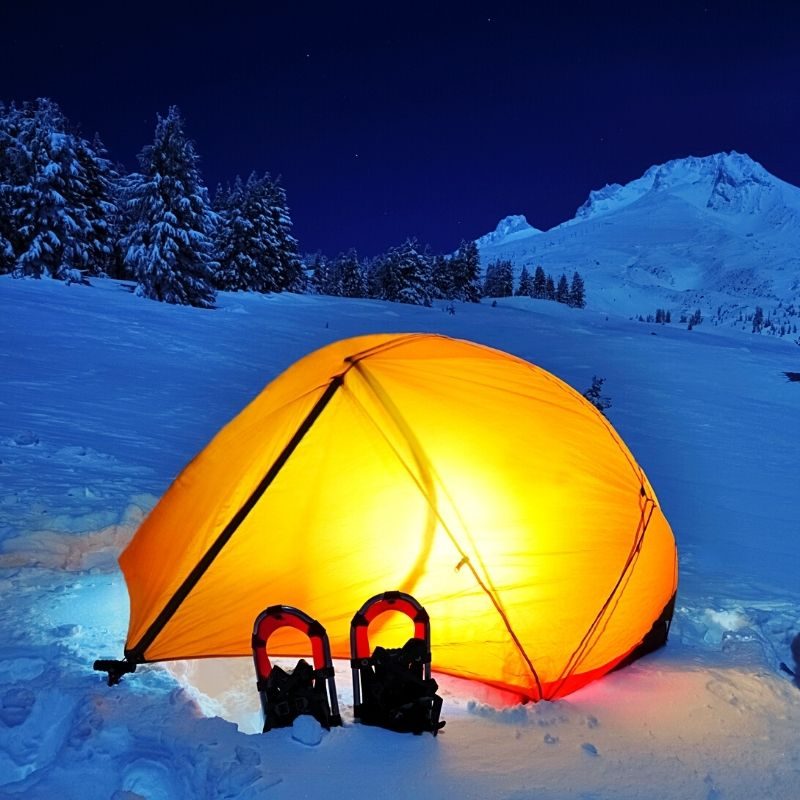Winter camping offers a unique experience for outdoor enthusiasts who seek the beauty of nature in its quiet, snow-covered state. The tranquility of winter landscapes can be mesmerizing, and the challenge of camping in cold weather can be exhilarating. However, winter camping presents specific challenges that require careful planning and preparation. By following essential tips, campers can ensure a safe and enjoyable experience amidst the chilly elements. This article will provide crucial insights into winter camping, covering everything from gear and clothing to safety tips and navigation.
Choosing the Right Location
Researching Campgrounds
Choosing the right location is one of the first steps for a successful winter camping adventure. Research is essential to find campgrounds that are open during winter months, often because many standard camping sites are closed due to snow and other harsh conditions. Look for campgrounds specifically designed for winter use, which may provide amenities like accessible trails and heating facilities.
Review the campground’s regulations regarding winter camping. Some areas may require permits, while others might have restrictions on campfires or other activities. Download maps and check the weather forecast for your chosen location before heading out. This preparation will help you select a site that meets your needs and enhances your winter camping experience.
Understanding the Terrain
Evaluating the terrain is also crucial when selecting a winter camping site. Look for flat ground areas that are safe and away from potential hazards like avalanches or falling branches. Avoid camping directly under dead trees, as branches could break off under snow or ice. Additionally, consider proximity to water sources for cooking and hydration.
Recognition of the shelter’s position concerning wind is critical. Choosing a spot that has natural windbreaks, such as hills or dense trees, can protect you from strong winds. Understanding the terrain allows you to minimize risk and form a comfortable campsite, making your winter adventure more enjoyable.
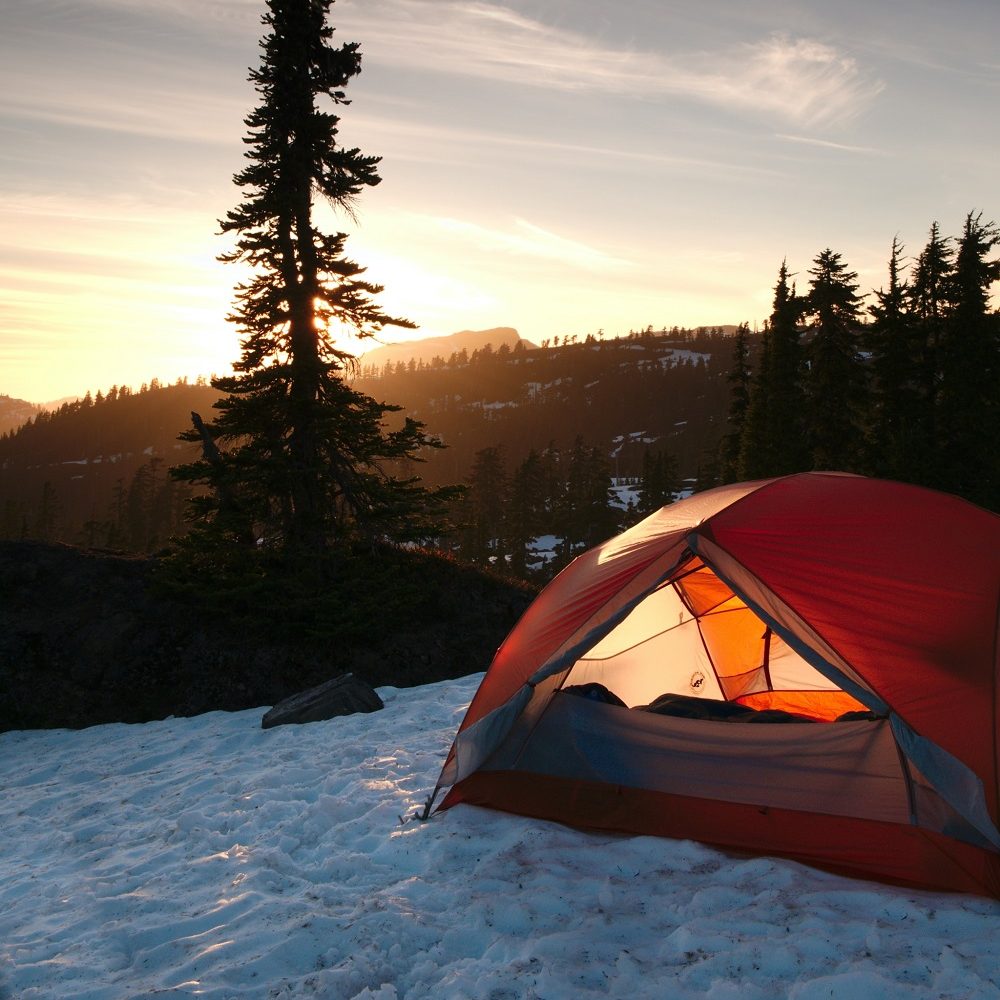
Essential Gear for Winter Camping
Must-Have Camping Equipment
Having the right gear is essential for winter camping. A four-season tent is a must-have, as standard tents may not withstand heavy snow or strong winds. Look for tents with reinforced poles and weatherproof materials. Ground insulation is also important; use a sleeping pad with a high R-value to provide adequate insulation from the cold ground.
A quality sleeping bag designed for low temperatures is crucial. Opt for a sleeping bag rated for temperatures below what you expect for your trip. Mummy-style bags often provide better insulation and warmth retention, making them a popular choice for winter camping.
Clothing Considerations
In winter camping, dressing appropriately is key to staying warm and comfortable. Adopt a layered approach, which allows you to adjust your clothing based on activity level and weather changes. Start with moisture-wicking base layers to keep sweat away from your skin. Insulating layers, such as fleece or down jackets, trap warmth, while waterproof and windproof outer layers protect against the elements.
Don’t overlook accessories like gloves, hats, and warm socks. Extremities lose heat quickly, so ensure that your hands and feet are well protected. Thermals for the feet can make a significant difference in comfort. Layered clothing not only keeps you warm but also allows for flexibility when engaging in various activities throughout your camping trip.
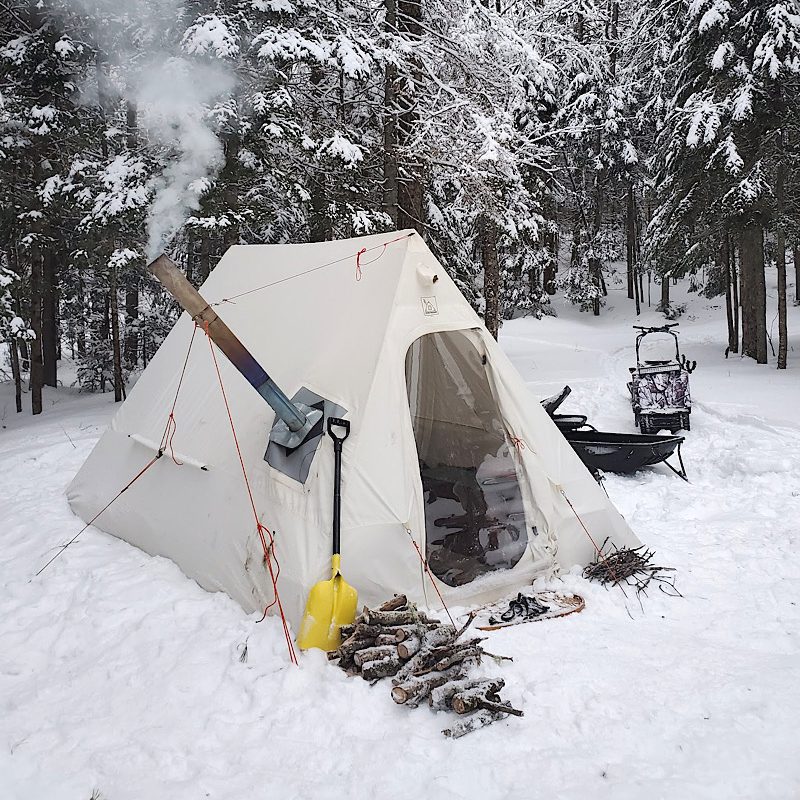
Planning Your Meals
Preparing for Winter Cooking
Proper meal planning is essential for a successful winter camping trip. Cold weather can impact your appetite, so opt for meals that are not only nutritious but also easy to prepare. Lightweight meals, like dehydrated foods or ready-to-eat options, can make cooking more manageable in freezing temperatures. Make sure to bring a reliable stove that performs well in cold weather, as propane stoves may become less effective at low temperatures.
Additionally, a windscreen can enhance stove efficiency and prevent heat loss during cooking. Always choose meals that require minimal pots and pans for quick cleanup. It’s also a good idea to pack a thermos for hot drinks, which can help keep spirits high during chilly days.
Hydration Concerns
Staying hydrated is crucial, even in winter. Water can freeze quickly, so carry a water bottle insulated to prevent freezing. If you plan to melt snow for drinking water, use a stove or campfire for the process. Liquid water is vital, but be mindful of your intake, especially during physical activities.
Bring electrolyte-rich drinks or snacks to maintain your energy levels while camping in cold conditions. Hydrating properly will ensure you feel your best during all your winter adventures. Proper nutrition and hydration will prevent fatigue and keep your energy high, allowing you to enjoy your camping experience to the fullest.
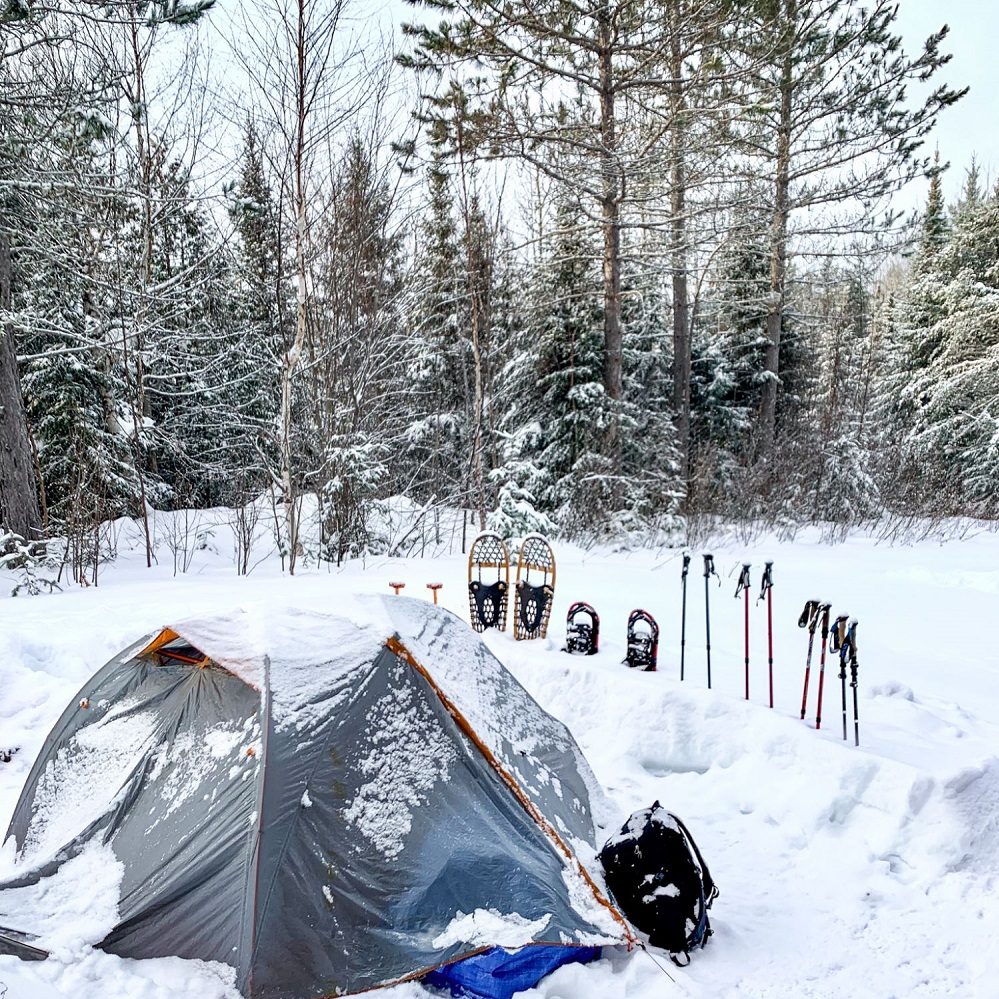
Safety Precautions
Be Prepared for Emergencies
Winter camping can pose risks that may not be present in warmer months. Therefore, it’s crucial to prepare for emergencies before heading out. Carry an emergency kit that includes a first-aid kit, extra food, water purification tablets, and a fire starter. A multi-tool can also come in handy for various situations that may arise.
Familiarize yourself with symptoms of hypothermia and frostbite, which can occur quickly in cold conditions. This knowledge will enable you to recognize the signs in yourself or others and take appropriate action. Practicing good safety measures can help ensure a successful and enjoyable camping trip.
Navigation skills are especially important in winter when visibility may be limited and familiar landmarks may be obscured by snow. Carry a map and compass along with a GPS device to ensure you stay on track. Knowing how to read a map and use a compass can be invaluable in unfamiliar territory.
Before you set out, familiarize yourself with the area. Mark key locations such as water sources, food storage spots, and emergency exits on your map. Keep your phone charged and consider carrying a portable charger just in case. By preparing for navigation challenges, you can reduce the risk of getting lost in the winter wilderness.
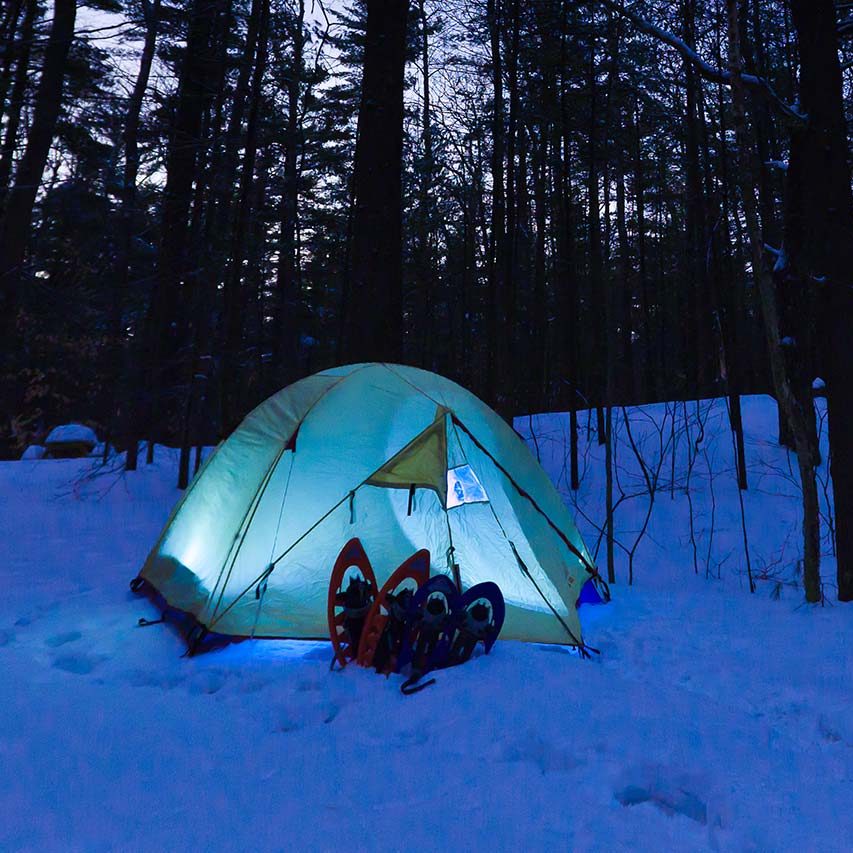
Setting Up Camp for Winter
Creating a Comfortable Campsite
When you arrive at your winter camping destination, setting up camp efficiently is vital for comfort. Before setting up your tent, clear away snow or debris from the ground, creating a flat area to work. If you encounter deep snow, consider digging a platform to secure your tent better.
Anchoring your tent securely is essential to prevent it from collapsing under the weight of snow. Use snow stakes or specialized anchors designed for winter camping. Make sure to account for potential snow accumulation and ensure your tent has enough ventilation to prevent moisture buildup inside.
Organizing Space and Gear
Once your tent is up, organize your gear effectively. Store your cooking supplies close to your tent for easy access but ensure a safe distance from sleeping areas to avoid hazards. Creating dedicated spots for gear decreases clutter and chaos during your stay.
Establishing a cooking area outside, if possible, allows for a more spacious environment within the tent. Use an insulated container to hold water for cleaning or cooking, and allocate storage solutions for food to keep it safe from wildlife. A well-organized camp not only enhances your experience but also promotes safety and efficiency.
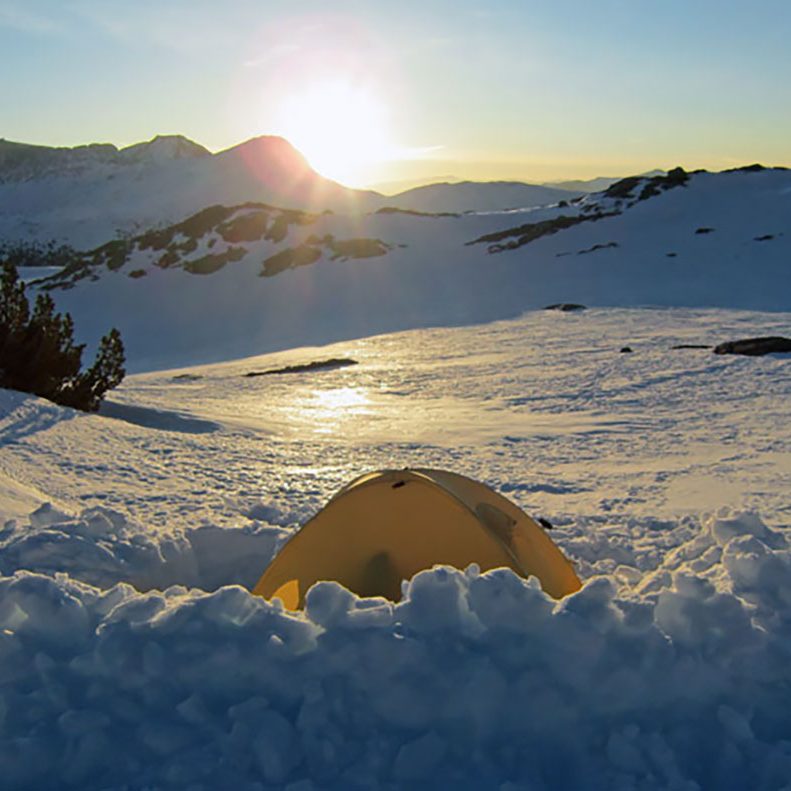
Engaging in Activities
Embracing Outdoor Adventures
Winter camping offers numerous opportunities for outdoor activities, from snowshoeing to snowboarding. Engaging in these activities not only keeps you active but also allows you to enjoy the serene winter landscape. If you have the equipment, consider bringing sleds or toboggans to add fun to your adventures.
Snowshoeing is a fantastic way to explore the winter wilderness, providing an enjoyable workout while experiencing the beauty of snow-covered trails. Cross-country skiing is another option for those looking to traverse longer distances. With the right gear and preparation, engaging in these activities will contribute to a memorable winter camping experience.
Evening Entertainment
As the sun sets, embracing evening entertainment is vital. Bring along games, playing cards, or a good book to enjoy in your cozy tent. Campfires can also create a warm gathering space for storytelling and roasting marshmallows, assuming conditions permit.
When engaging in evening activities, ensure that you remain warm. Use hot water bottles to heat your sleeping bag, or enjoy warm drinks to keep your body temperature up. The satisfaction of a day well spent in the winter wilderness can be enhanced by evenings filled with good company and laughter.
Understanding the Environmental Impact
Leave No Trace Principles
As winter camping grows in popularity, it is crucial to practice Leave No Trace principles to minimize the impact on the environment. Respect the areas you visit by sticking to established trails, camping in designated sites, and stepping lightly on fragile landscapes. This practice helps preserve the beauty of nature for future generations to enjoy.
Watch for litter and dispose of waste properly. Bring garbage bags to carry out all waste, including food scraps and personal items. Not only does this promote environmental stewardship, but it also contributes to the wildlife’s health and safety. Leave No Trace practices ensure that outdoor spaces remain pristine and enjoyable for everyone.
Conservation Awareness
Becoming educated about local wildlife and ecosystems is also essential. Understanding how winter conditions affect animals and plants in the area fosters respect for nature.
Consider participating in conservation activities, such as volunteer-led tasks that promote sustainability. Engaging with local environmental organizations can provide insights into the local ecology and inspire others to embrace responsible outdoor practices. Awareness of environmental impact elevates the winter camping experience and enhances appreciation for nature.
Your Memorable Winter Camping Experience
In conclusion, winter camping offers a rewarding and unique way to experience nature during the colder months. With proper planning, the right gear, and careful consideration of the environment, campers can ensure a safe and enjoyable adventure.
From selecting an appropriate camping location and preparing meals to engaging in outdoor activities and caring for the environment, each aspect contributes to a fulfilling journey. Embrace the beauty of winter landscapes and create lasting memories in the great outdoors. Whether you’re a seasoned camper or a newcomer to the winter camping experience, following these essential tips will enhance your adventure and enrich your appreciation for nature.
